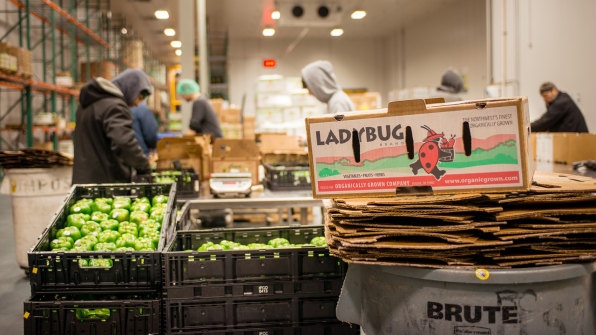The new owner of Organically Grown Company, an Oregon-based organic produce distributor, isn’t a person but a trust, created to help the company maintain its social and environmental mission as it grows. The company is the first in the U.S. to use something called purpose trust law to restructure itself.
“Most ownership structures are still about an owner that expects to pull out profit regularly from the company as well as someday sell their stock for more than they bought it for,” says Natalie Reitman-White, VP of “organizational vitality” and trade advocacy at Organically Grown Company. “This stops that cycle because we’ll have a single owner–a trust that will hold the company ownership stock into perpetuity–that never wants to extract a profit and never wants to sell the company.” Profits, instead, will be continually reinvested in the company’s mission and stakeholders.

The company has experimented with several forms over its 40-year history. When it was founded in the late 1970s, it was a nonprofit, set up to help farmers with organic growing methods. When the founders realized that the best way to promote organic produce would be to help farmers sell it, they became a business. They later became a coop, owned by farmers, and then–to be able to include employees in ownership–became an S-corporation. As they grew, because an S-corp can only have a limited number of owners, they added an employee stock ownership plan.
Recently, as an increasing number of early founder-owners began to retire, the company faced a common challenge for social enterprises: It’s hard to afford to buy out owners who want to retire, and selling the company to someone else risks the chance that the company’s mission could be lost.
Even benefit corporations, which legally have to consider social and environmental impact along with profit, can change when someone new buys a company. “This is a way to lock in the values of a benefit corporation,” says Reitman-White. “In most other ownership forms, the owners can vote to revoke benefit corporation status.”

Organically Grown Company worked with a legal team to make a novel use of a “purpose trust,” a type of trust under U.S. law that serves a purpose rather than an individual. (It’s commonly used for purposes like maintaining a family art collection, for example, but hasn’t been used before to help a company maintain its mission.)
RSF Social Finance, a values-driven financial services organization, gave the company a $10 million loan to buy out its current shareholders and transfer shares to the trust. The company is also selling shares of preferred equity to some investors, but those investors won’t have a say in how the company is run. A board will run the company to ensure that it’s maximizing its social and environmental purpose, not focusing on short-term profits.
It’s a structure that other companies are likely to follow. “There just aren’t good options for mission-driven companies that want to either raise money to scale or raise money to give their founders liquidity,” says Kate Danaher, senior director of integrated capital at RSF Social Finance.
“I also think there are many startups that could structure this way from the beginning and avoid having to restructure later,” says Matt Mroczek, VP of finance at Organically Grown Company. The company is now creating a toolkit that other companies can follow to go through the legal, financial, and management changes needed to make the shift.
“Now that OGC has created the footprint for it, I think it’s really easy to replicate,” says Danaher, who adds that many companies are already interested in following the model, even though it’s new and will take some time to be fully proven as successful. “I think this is just one solution and people will continue to innovate on it. I think other people might not do this exact thing, but they’ll do a version of it. But it was important that somebody did it for the first time and can show that it’s successful.”
(15)